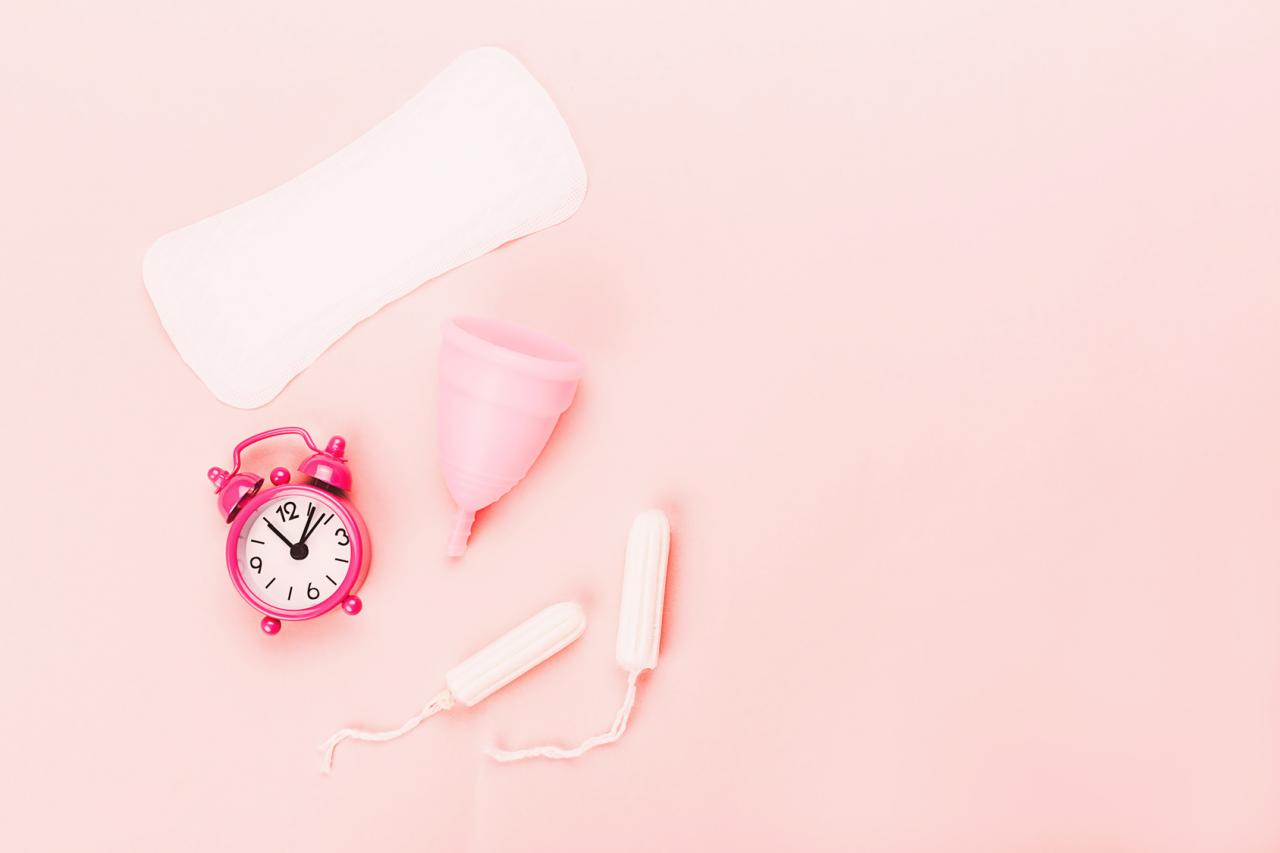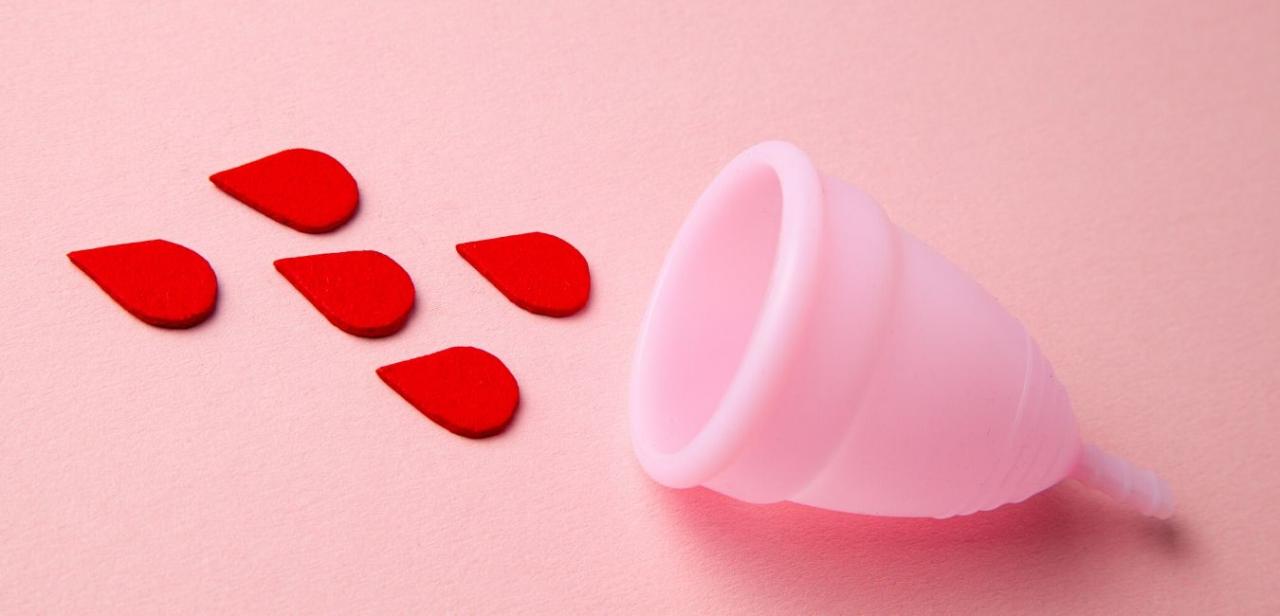 Andres Rodriguez/PhotoSpin
Andres Rodriguez/PhotoSpin
The menstrual cycle occurs in all females from the onset to puberty (average age 11 or 12 years) to the menopause in middle age (average age between 45-55). The lining of the uterus is shed via vaginal bleeding when a girl or woman has not conceived a pregnancy.
The menstrual period lasts between two days and seven days, usually occurring once every 28 days, although anything from once every 24 days to once every 35 days is considered normal.
If you are having a period more than once every 24 days, it is considered an irregular cycle.
Having a period once every two weeks, or twice a month is abnormal and you should see your doctor because you may become anemic if you are having very frequent periods. They are sometimes a sign of infection or other medical problem that would need treatment.
Reasons for a period every two weeks could be:
• Dramatic weight loss or gain -- This changes the hormones in the body and these are responsible for directing when the period will start.
• Excessive exercise -- This too disrupts hormones.
• Stress -- Exams, family argument, financial worries, divorce, even a holiday can cause a temporary change in your menstrual cycle.
• Illness and/or medications -- Some medications can affect your cycle. Talk to your doctor about altering or stopping your medication if you think this is happening.
• Uterine problems such as polyps, cysts, fibroids or tumors (either benign or cancerous).
• Sexually transmitted infections -- These can cause bleeding in between periods which can be mistaken for a period.
• Thyroid problems -- Thyroid disease could cause a thickening of the uterine lining, resulting in more bleeding than normal.
• Reactions to contraceptive methods -- Sometimes the pill, depo provera injections or the copper-only IUD can result in a change in your cycle.
~ The pill and IUD can make you bleed in between periods, known as "breakthrough bleeding" and this may be mistaken for a period.
~ The IUD can also make your periods heavier.
~ The depo-provera injection can make your cycle irregular, however, it often stops your period altogether instead of making it more frequent.
~ Sometimes changing or stopping your method of contraception can cause a sudden drop in hormones and this can result in a change to your cycle.
• Onset of menopause -- In women aged 45 and over, having periods every two weeks can be a sign that you are about to go through menopause. It can be a sign of ovulation beginning to shut down. If you are under 45, having irregular periods in addition to other symptoms commonly associated with menopause, may signal premature ovarian failure.
Treatment
Sometimes treatment is not necessary, for instance, if the disruption in cycle is due to stress, weight loss or gain, or illness, it may be temporary and may correct itself in time.
However, to rule out other possibilities your doctor will perform a pelvic examination. Your doctor may also take a sample of the uterine lining as well as doing an ultrasound scan to see if there are any obstructions in the uterus, such as fibroids.
If any obstructions are found, you can be referred for surgery to have them removed. If any cancer is found, you will be referred to an oncologist who will plan your care with you.
Sexually transmitted infections can be treated with antibiotics (and the use of condoms to prevent further infections). Your partner may have to be treated as well.
If the problem is caused by a contraceptive device or medication, this can usually be changed to stop the problem.
Heavy and/or frequent periods can sometimes be controlled by certain brands of the pill. If you find they are really disrupting your life, for instance, you are bleeding through your clothes, have to miss work days and can’t plan your holidays, this may be an option depending on your medical history.
Hormone treatment could also be given in this scenario, if you have thyroid disease or if you are starting menopause.
Sources:
Periods, Heavy. NHS Choices. Web. 26 May 2012. http://www.nhs.uk/conditions/periods-heavy/pages/introduction.aspx
Heavy Periods (Menorrhagia). WebMD. Retrieved May 27, 2012.
http://women.webmd.com/guide/heavy-period-causes-treatments
Top Ten Causes of Heavy Menstrual Bleeding. About.com Women's health. Retrieved May 27, 2012. http://womenshealth.about.com/od/abnormalbleeding/a/causemenorrhagi.htm
Irregular Periods Every Two Weeks, 34 Menopause Symptoms. Web. 26 May 2012.
http://www.34-menopause-symptoms.com/irregular-periods/articles/irregular-periods-every-two-weeks.htm
Premature Ovarian Failure, National Insititute for Child Health and Human Development. Web. 26 May 2012. http://www.nichd.nih.gov/health/topics/Premature_Ovarian_Failure.cfm
Joanna is a freelance health writer for The Mother magazine and Suite 101 with a column on infertility, http://infertility.suite101.com/ She is the mother of five children and practices natural childbirth, delayed cord clamping, full term breastfeeding and organic food diet.
Reviewed May 28, 2012
by Michele Blacksberg RN
Edited by Jody Smith





Add a Comment221 Comments
Hello. I got my first period 7 days before my 10th birthday. I am still a kid back then who loves to play with other kids and don't mind having my period so I don't really take notes of the date of my period. All I remember is that I often stained my uniform not knowing if its because of the heavy flow or just because of too much playing. I often get period twice a month every month during my high school years, it range from 5 to 7 days. I don't feel cramps of pain so i thought it was normal, but then Feb. 2017, I got my period for 14 straight days, it was so heavy and I was sent to hospital and had 3 bags of blood transfusion. The ultra sound result says it was due to hormonal imbalance and I had to take pills from then on. For more than 6 months I kept using the pills and my period became normal. it comes only once a month. So I decided to stop taking pills and for awhile, my period was still normal, until my internship came. Jan. 2018, I started having menstruation twice a month again, until today. I even started using an app and it seems like I my period comes every 15-16 days. Is it possible for me to get pregnant? I am single but I dream to be a mother someday, reading some articles about this makes me worry. Hope someone could answer my questions. Thank you!
February 6, 2019 - 12:19amThis Comment
I am 39 my last 2 cycles lasted 19 days and 12 day and am now on day 3 of cycle 3. I have been given every test under the sun biopsies,cervical cauterization and nothing has shown up or helped. I had my tubes tied about 9 years ago. Any ideas?
December 3, 2018 - 12:07pmThis Comment
Hello Anon
You may be perimenopausal at age 39 - long and frequent periods are common for some women but you are bleeding a lot and probably need treatment.
What did you have biopsied? I assume the biopsy was done at the same time as the cauterization.
Since you said you had every test, I assume your hormone levels were checked?
We look forward to hearing back from you.
Best,
Susan
December 3, 2018 - 3:18pmThis Comment
Hi Susan, I had a cervical biopsy and after that another biopsy from further up cant remember what that one was called. I had a whole range of bloods including hormones, iron, thyroid and blood counts. I also had ultrasounds. All tests came back normal. I have just been back to my gp as gyno referred me back to them after the tests. I am now going to try going back on contraceptive to try to regulate things otherwise she wants to send me for an endometrial cauterization. I asked if it could be start of menopause and she just brushed over that. I dont actually seem to have got any answers from either gp or gyno. Kinda frustrating as this has been going on for a few years now
December 3, 2018 - 4:33pmThis Comment
Hello again Anon
It sounds like you've had a battery of tests but you are bleeding excessively, even for someone who may be in early menopause. I assume you tested negative for fibroids.
Fibroids are benign (noncancerous) growths in the wall of the uterus. The uterus is the reproductive organ where a fetus grows. Fibroids often grow into the uterine cavity. In rare cases, they may protrude from the uterus toward nearby organs. Fibroids may be very small or may grow to eight or more inches in diameter. Usually more than one fibroid is present. About 20%-30% of women of childbearing age, and as many as half of all women, have fibroids. Many do not realize it. Most do not have symptoms until their late 30s or 40s. However, if all your scans and tests are normal, you may not be dealing with this.
Contraceptives are for far more than birth control so it's a goo idea to try them to see if they regulate your system. If they don't work you may need to proceed with the cauterization.
I can imagine how frustrating this is for you - please keep us posted as to how things progress.
Best,
Susan
December 4, 2018 - 5:18amThis Comment
Hi Susan I had a cervical biopsy and another biopsy to test for endo plus hormones blood counts iron and everything has come back normal. Just went back to the dr and asked for clarification from her and she said something about endometrial instability. I am going to try a contraceptive to get things back under control otherwise they are going to look at an endometrial cauterization.
December 3, 2018 - 4:25pmThis Comment
36yo been having irregular periods for last 3yrs and last 2yrs i have my period twice a month sometimes 3 times a month. The flow varries from light to so heavy I feel like a fountain and have a lot of cleaning up to do! My last gyno appointment was in may or June my doctor doesn't seem to be concerned as my blood work and pap came back fine but since then they are getting more and more painful!
November 14, 2018 - 4:25pmThis Comment
Hello Anon
It might be time to get more blood work done and to look for options like birth control pills that can control your cycle. Don't let a doctor fob you off by saying this isn't something to be worried about - she isn't going through what you are. Seek a different gynecologist who will listen.
Best,
Susan
November 14, 2018 - 4:54pmThis Comment
Is it abnormal to get period twice a month? My very first period was when i was 11 y/o and now im 17 y/o. First time will be normal such that the colour would be red and the amount is average, however the second period would be brown and the amount is little. But both period are either 7 or 8 days. I'm quite worried
July 21, 2018 - 9:27amThis Comment
Hello.
Sometimes, in very young women, periods can be irregular. Take the time to read the article and the answers already given. Consider calling to schedule an appointment with your gynecologist if you are still concerned.
Helena
July 21, 2018 - 1:27pmThis Comment